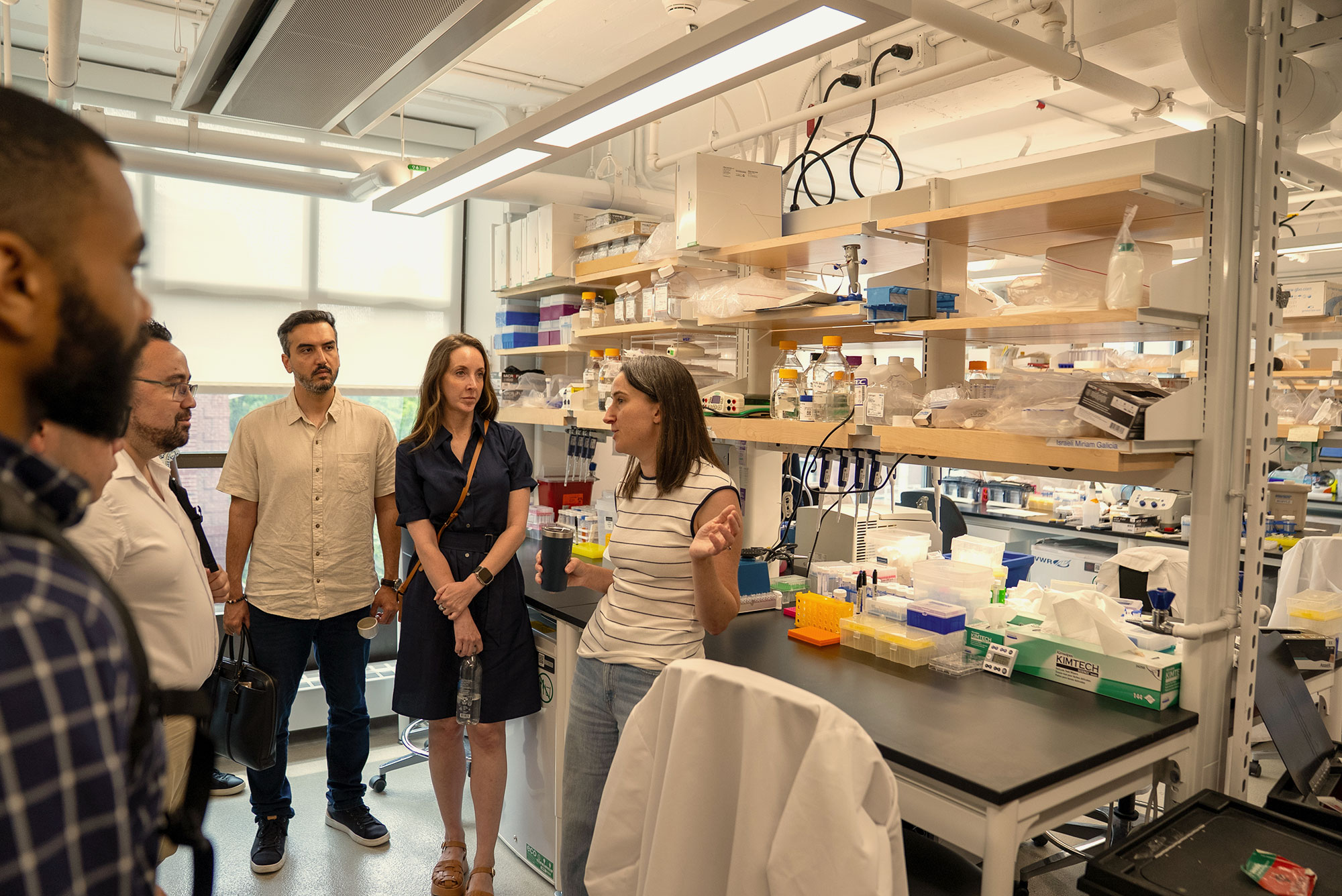Biotechnology Master's Degree Overview
Biotechnology sits at the intersection of science, innovation, and business — driving breakthroughs in medicine, agriculture, and environmental solutions. Through the Biotechnology Master’s Degree Program, you can build the interdisciplinary expertise to lead in this growing field.
- Develop an understanding of biotechnology principles, research and innovation, and business, including commercial functions, financial analysis and valuation, and the regulatory aspects of drug development.
- Build knowledge of current industry needs by cross-training in statistics, management, or computer science.
- Gain experience in experimental or case study design, scientific data analysis, writing and communication, ethical implications, and effective collaboration.
- Graduate with a Harvard University degree: Master of Liberal Arts (ALM) in Extension Studies in the field of Biotechnology.
Courses
As you pursue your degree, you’ll have the flexibility to study part time, allowing you to choose courses that fit your schedule and support your professional goals. You can choose to pursue either a capstone or thesis track.
Example Courses
- Introduction to the Business and Science of Biotechnology
- Introductory Bioinformatics
- Biomedical Product Development
- Ethics and Trends in Biotechnology
- Financial Analysis and Valuation in Biotechnology
- Regulatory Aspects of Drug Development
For the in-person course — the Genetown-Harvard Experience — you’ll engage with the vibrant biotech community in Cambridge.
Stackable Certificates
As you work your way toward your master’s degree, you can take courses that also count — or “stack” — toward a certificate. It’s a cost-effective, time-saving opportunity to build specialized skills and earn a professional credential along the way to your degree.
Stackable graduate certificates include:
Admissions
The path to your degree begins before you apply to the program. You’ll earn your way in through our performance-based admissions, completing coursework for admission and earning credits toward your degree right away.
Next Start Term
You can enroll in your first admission course this summer or fall.
Course registration opens March 3 for summer and in mid-July for fall.
Featured Faculty
Our biotechnology instructors bring a genuine passion for teaching, with students giving our faculty an average rating of 4.4 out of 5.
Steven Denkin
Director and Research Advisor, Biotechnology, Harvard Extension School
Jaclyn Dunphy
Senior Director of Strategy and Research Operations, Abiologics
Nicolas Labovitis
Chief Executive Officer, Ibex Finance, LLC
Masha Fridkis-Hareli
Founder and President, ATR, LLC
Jonathon Parker
Vice President, Head of Regulatory Neurology, Ultragenyx
Career Opportunities & Alumni Outcomes
Our biotechnology graduates are employed in the field of biotechnology and related industries, such as pharmaceuticals, hospital and healthcare, and medical devices.
Sample Alumni Job Titles
- Antibody Engineer
- Biotechnology Engineer
- Computational Biologist
- Data Scientist
- Field Application Specialist
- Senior R&D Manager
Sample Alumni Employers
- Biogen
- Bristol Myers Scuibb
- Genzyme
- Pfizer
- Novartis
- Wyss Institute
Sample Doctoral Programs
Many alumni have gone on to PhD programs in the fields of AI and machine learning, cell and systems biology, proteomics, and neurogenetics. Universities attended include:
- Oxford University
- University of Wisconsin
- University of California at Irvine
- University of Toronto
Program Benefits
Access career advising and other services through Harvard’s Mignone Center for Career Success.
Complete a capstone project focused on innovation or a meta-analysis.
Pursue an internship to explore a topic in bioinformatics, biotech management, or project management.
Explore entrepreneurial opportunities through the Harvard Innovation Labs.
Become a member of the worldwide Harvard Alumni Association (400,000+ members) and Harvard Extension Alumni Association (29,000+ members).
Tuition & Financial Aid
Learn more about the cost of attendance.
FAQs
How long does it take to complete a master’s degree in biotechnology?
Because most Harvard Extension School students work full time while earning a degree, they take an average of two to four years to complete the program, depending on course load. Most students take one or two courses each semester. You have five years to complete the degree.
Is a master’s in biotechnology worth it?
Many students currently working toward a master’s in biotechnology are doing so to advance their careers. Pursuing a master’s degree in a specific field demonstrates to your employer that you care about continuing to learn in your field. Earning an advanced degree can also help you differentiate yourself to prospective employers and gain expertise in specific areas of the field. To see the types of roles and companies where our alumni work, explore the biotechnology career outcomes.

